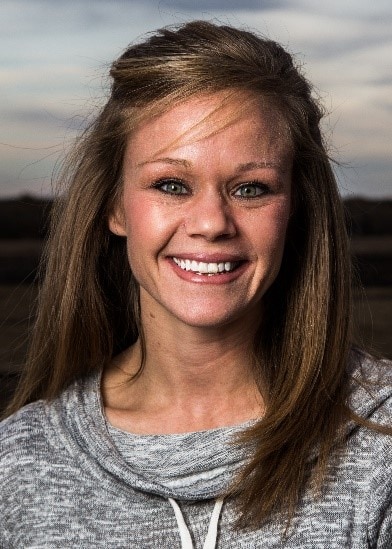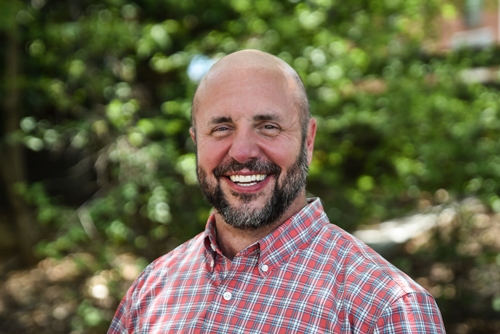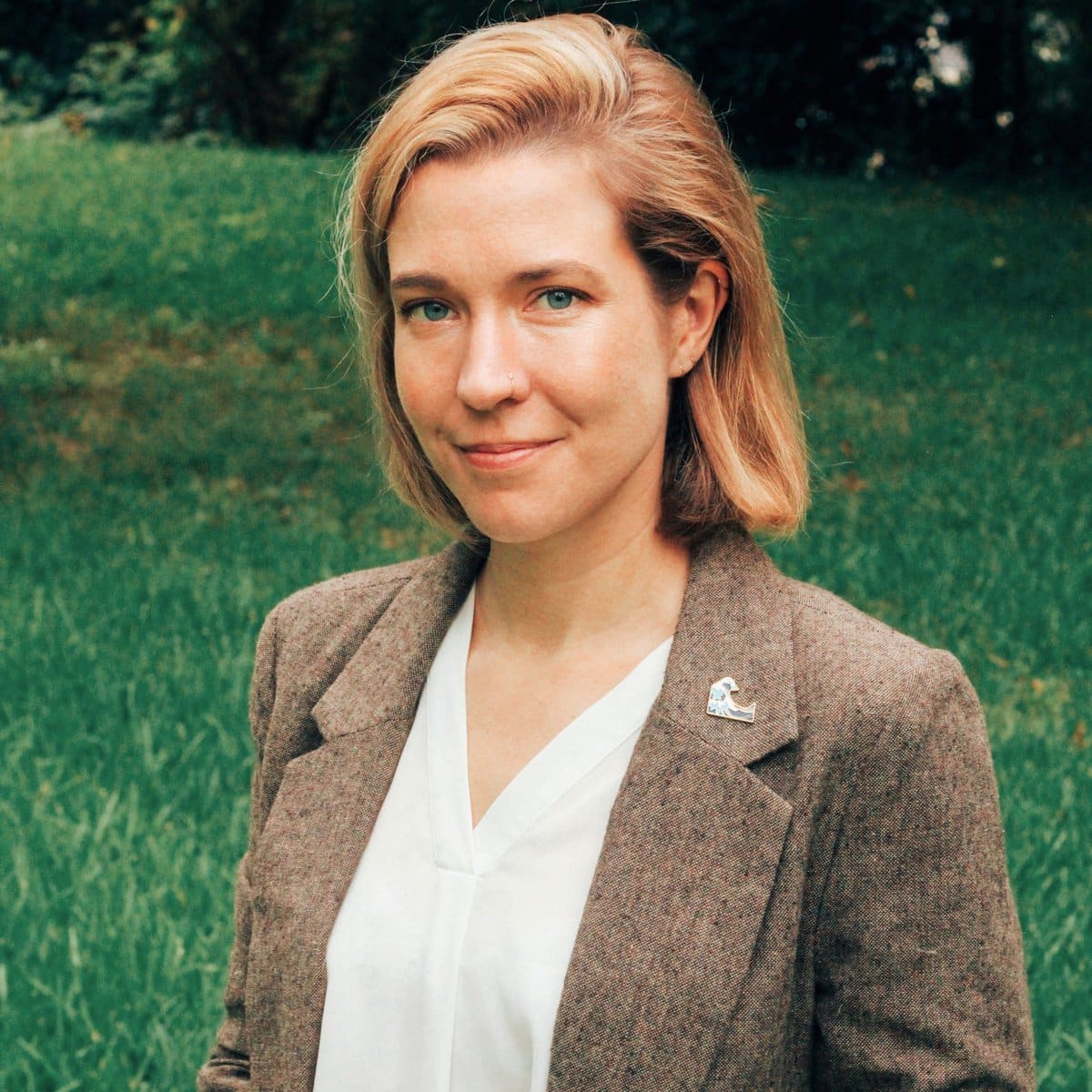As fall gets into full swing, we’re kicking off the second half of Season 6 of the Engineering With Nature® Podcast by talking with members of the EWN leadership team about what they’ve been working on and what’s ahead for the EWN Program. In Season 6, Episode 5, host Sarah Thorne is joined by cohost Jeff King, National Lead of the Engineering With Nature Program; cohost Amanda Tritinger, Deputy Program Manager, EWN; and Courtney Chambers, Communications Lead, EWN.
The summer of 2023 was unprecedented summer in many ways. As Sarah notes, “Mother Nature certainly demonstrated that climate change is upon us.” Jeff agrees, revisiting the discussion in Season 6, Episode 4, with Anabela Bonada, Manager and Research Associate at the Intact Centre for Climate Adaptation at the University of Waterloo in Ontario, Canada, about wildfires in Canada. Jeff notes that since that episode aired, Canada’s worst wildfire season ever has continued, with over 17 million hectares burned (over 65,500 square miles). And on August 8, wildfires devastated Lahaina, Hawaii, becoming the worst wildfire in the US in over a century. “It has been a very tough time for all of those whose lives have been touched by the unprecedented wildfires, those who have lost loved ones, those who are fighting the fires, and those who have been affected by the smoke.” We’ve also seen extreme rainfall and flooding caused by Tropical Storm Hillary, which made landfall on August 20, breaking many rainfall records, and causing extraordinary flooding, and devastation caused by Hurricane Idalia to communities along the big bend in Florida when it made landfall on August 30. As Jeff notes, “People in all parts of the US, Canada, and around the world are experiencing the effects of climate change firsthand—unpreceded heat, extreme ocean temperatures, rain, flooding, and forest fires.”
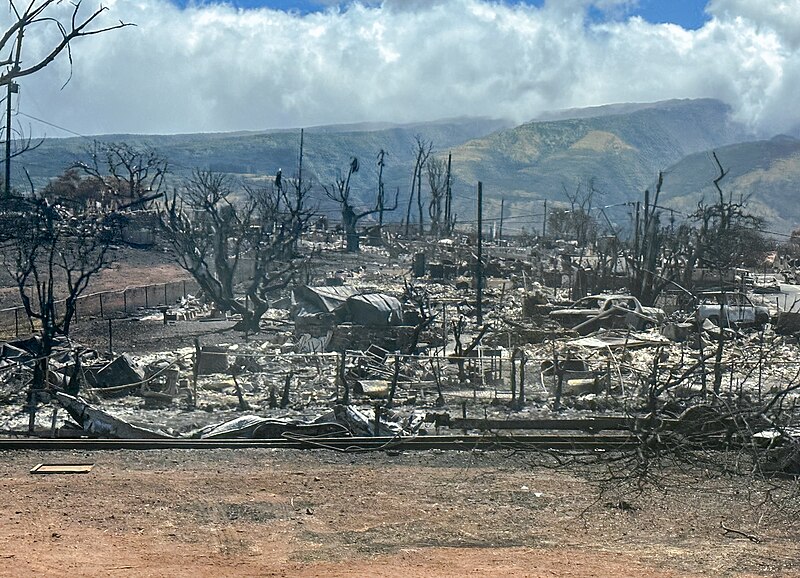
This global wakeup call is challenging and motivating for the EWN Program. The EWN team has been working on integrating nature-based solutions to address the climate change imperative, particularly as it affects the US Army Corps of Engineers’ (USACE) mission. Jeff notes that there are 49 active research projects being led by personnel at the USACE Engineer Research and Development Center (ERDC), including Eileen Glynn researching both the impact of wildfires on soils, which can accelerate erosion, and the impact of flooding; Andrew McQueen and our colleague Joe Christo at the Stone Living lab in Boston studying enhancing community resiliency, biodiversity, and habitat in urban settings; and Alan Kennedy, Zackery McClelland, and Burton Suedel exploring 3D printing of natural materials for nature-inspired infrastructure, to name just a few. “There’s lots going on!! I’m sure we’ll be talking about all these project—and many others—on future episodes of the EWN Podcast.”
For some additional perspective on what is going on in EWN, Sarah speaks with Courtney Chambers, Communications Lead for the EWN Program. Courtney is responsible for sharing the incredible work that the EWN project teams and collaborators are doing. Over the past few months, Courtney has been supporting the development and promotion of several publications that are critical to broadening the reach of EWN. One of those recent publications is a Capstone Report on improving the evaluation of the benefits and costs for water resource projects. Quantifying social, environmental, and economic benefits and costs will result in more robust evaluations and achieve greater cumulative value from infrastructure projects. Other upcoming publications EWN is working on include the next volume of the EWN Atlas series, which captures the essence of EWN and nature-based solutions through images. Volume III is scheduled to be published in early 2024. As Courtney notes, “If you’ve seen Atlas I or II, you know that these books really showcase the potential for Engineering With Nature and the diversity they can include.” As Sarah characterizes it, “You’re helping to share the stories of all of the brilliant scientists, engineers, landscape architects, and other collaborators—and the EWN projects that they’re working on—to inspire others. It’s important work.”

Courtney relates that, “When I started this role, at one point, I was in a hurry and allowed the grammar check on my computer to make a correction for me. It turned that capital W from Engineering With Nature into a lowercase w. At that point, it really struck me that that capital W was a big deal for more than one reason. It wasn’t just about brand identity. The W is a fundamental element of the Engineering With Nature idea. It helps emphasize that collaboration and partnership, of course, are a critical part of this approach.” Another important product that Courtney is supporting is development of the EWN Strategic Plan, which extends the vision and acts as a roadmap for the EWN Program through 2030.
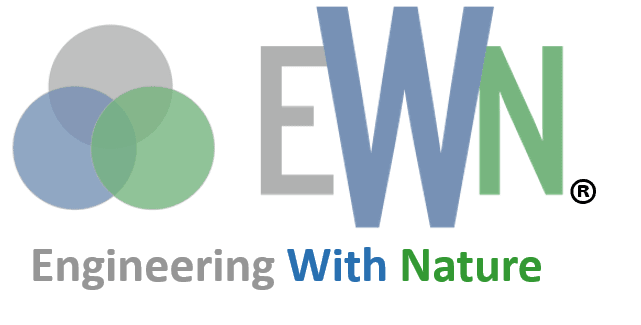
Sarah also speaks with Amanda Tritinger, Deputy Lead of the EWN Program, to get an update on some of the interesting EWN opportunities developing in Southeast Asia. Amanda shares highlights from her recent trip to Taiwan, which was coordinated with the USACE Pacific Ocean Division. She was invited to talk about coastal and fluvial opportunities to engineer with nature as part of the information and technology exchange with the Taiwan Water Resource Agency. “The Taiwan Water Resource Agency has a lot of really cool projects. They’ve been doing a lot of research with local colleges as they want to be at the forefront of the natural infrastructure game. It was exciting to share what the EWN Program has going on but also to learn a lot of what Taiwan has been doing in a very different climate than what I’m normally used to.”
Amanda had the opportunity to visit the Aogu Wetlands in Chiayi County and see the unique natural areas and natural features that provide ecosystem services. “While we were out on a sandbar, we talked about where the erosion is coming from, if it’s waves or currents, and we talked about how they can use natural features to combat that erosion. That sandbar is protecting not only the wetlands but the whole community behind it. We made friends at the Taiwan Water Resource Agency. They have invited us back for the Taiwan International Water Week in October.” Amanda notes that through the Pacific Ocean Division the EWN Team has been involved with a lot of opportunities in Southeast Asia with colleagues in Japan and Vietnam. “It’s really exciting that the world is a big place and what seems like a problem can be its own solution through the use of natural infrastructure and better understanding the environment around us.”
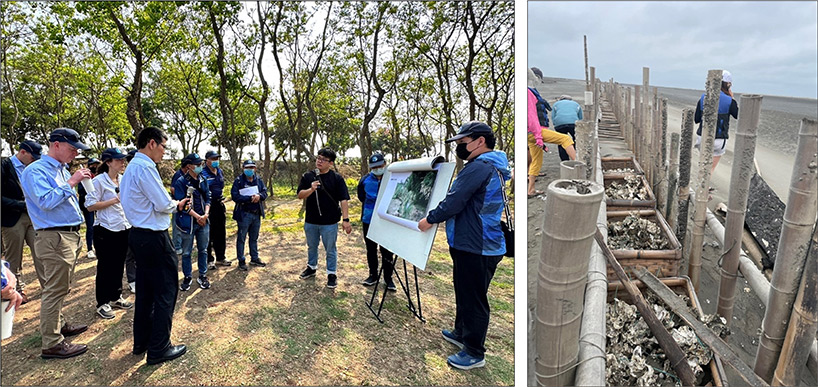
Sarah and Jeff discuss some other news:
- Sarah’s recent conversation with the National Nature Assessment’s new Director Phil Levin. We introduced the NNA in our conversation with Heather Tallis in Season 5, Episode 3.
- The wrap up of Kotchakorn (“Kotch”) Voraakhom’s residency at the Sam Fox School of Design & Visual Arts at Washington University in St. Louis. As part of her residency, Kotch has explored issues of climate change, water-based urbanism, and community engaged design with the students. She also led public meetings with academics, local municipal leaders, designers, youth, and others in St Louis to develop a common understanding and platform to discuss climate change-related issues. We talked about their plans for Kotch’s residency in Season 4, Episode 10. Since then, Derek’s book, Way Beyond Bigness—The Need for Watershed Architecture, has been published. Derek and Kotch will return in Season 6, Episode 9, which airs in November.
- Upcoming in Season 6, Episode 6, our guests will discuss an interesting collaboration to apply nature-based solutions to protect and preserve the heritage of Saint Croix Island, a tiny island off the shores of Maine and New Brunswick that played a very significant role in the history of Canada, the United States, and France.
In closing, Jeff notes, “The climate change that we’ve all been experiencing is really challenging and motivating our EWN colleagues and collaborators to be innovative—to conduct research and field work on a range of projects that can help mitigate the impacts of climate change and help communities adapt and become more resilient. I really look forward to sharing some of the truly groundbreaking work underway on future episodes of the EWN Podcast. I don’t think we’re going to run out of interesting things to share with our listeners!!”





